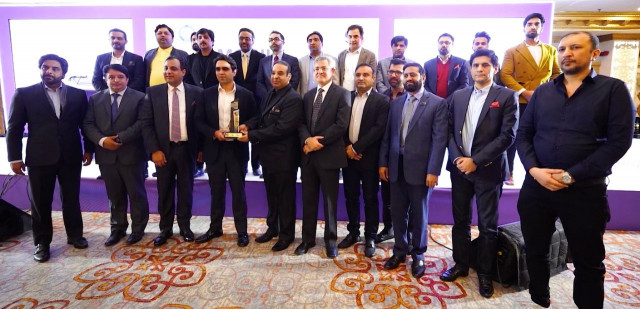PMPMA and EDB team up to boost the smartphone industry in Pakistan
The summit's main objective was to invest and create jobs in the mobile assembly industry

Global demand for technological products, particularly mobile phones, is at an all-time high.
As a country with a population of more than 225 million, Pakistan needs 36 million units annually. By strategically combining our population strength and local demand, Pakistan can increase exports rapidly, as the nation produces 93%+ of local demand through its recently launched mobile device manufacturing policy, which has been successfully implemented by the Engineering Development Board (EDB).
In recognition of this, the Engineering Development Board (EDB) recently held a summit to showcase the industry's huge potential in conjunction with the Pakistan Mobile Phone Manufacturers Association (PMPMA).
There were 31 local manufacturers present at the event, including renowned brands such as, Samsung, Xiaomi, ZTE, Realme, Vivo, Oppo, Tecno, Infinix, Itel, G’FIVE, VNUS, Mobo Mobile, Digit, Dcode, Nokia, VgoTel, Qmobile, E-TACHI, Club, Calme, MeMobile, Hello Tech, Gresso, Emarat, Oukitel, MaxFone, Spice Mobile, Go Mobile, Faywa, Kechaoda, Pritel, SEGO, Sparx, and Xmobile.
Among the key association officials present were Mian Abdur Rehman (Chairman), Muzaffar Piracha (Senior Vice Chairman), Aamir Allawala (Vice Chairman), and Zeeshan Mianoor (Deputy Vice Chairman). A special honour was bestowed upon the event by Makhdoom Syed Murtaza Mahmud, the Federal Minister for Industries and Production.
The event provided a much-needed platform to all the relevant stakeholders: Mobile Device Manufacturers, Pakistan Telecommunication Authority, Government Officials from the Ministry of Industries and Production, Ministry of Commerce, Board of Investment, National Tariff Commission, Telecom, Federal Board of Revenue, and Ministry of IT. Investing in the mobile assembly industry and providing employment opportunities were the objectives of the initiative.
1675167172-0/8-(3)1675167172-0.jpg)
The Summit was organised to gather input from all stakeholders regarding local manufacturing of mobile phones in order to develop a roadmap that maximised industry's output and benefitted local residents. Experts discussed how local production could boost the country's economy, generate exports, and create jobs.
Manufacturing of mobile phones in Pakistan began in 2015 and despite being a third-world country, the industry did not undergo a dramatic shift due to the lack of a policy platform. In spite of this, mobile products began to flourish in Pakistan after 2018. The sector attracted more than $200 million in investment from local companies. In light of this situation, the government of Pakistan formulated the country's first mobile device manufacturing policy.
Major industry experts and government officials attended the event to discuss the potential of local mobile manufacturing in Pakistan.
It is estimated that the local mobile industry can generate approximately $14 billion for the national exchequer if it flourishes at a healthy pace and receives government support. A number of reasons were provided for the audience to validate their assumptions.
1675167172-1/8-(4)1675167172-1.jpg)
The first advantage of Pakistan is the availability and affordability of its workforce. In view of the labour-intensive nature of the industry, a mobile phone assembly plant requires a large number of employees to operate. Hence, low workforce costs make the product more cost-effective to produce.
Likewise, using solar energy could lower Pakistan's energy costs, giving the country additional benefits. In comparison to other products and categories, competitive advantage is the key in mobile phone manufacturing.
The participants stressed the importance of the mobile phone industry and requested that the government pay special attention to accelerate the growth of this industry, while taking advantage of the export opportunity that could certainly increase Pakistan’s export to equalise its trade deficit. A friendly conclusion was reached at the end of the meeting.




















COMMENTS
Comments are moderated and generally will be posted if they are on-topic and not abusive.
For more information, please see our Comments FAQ